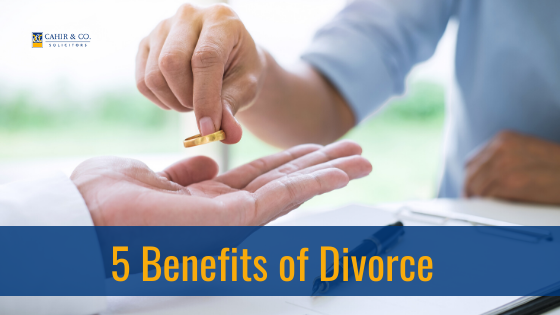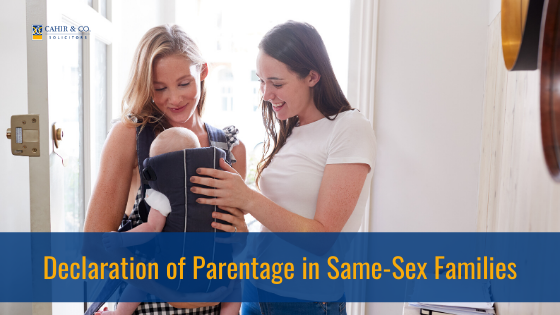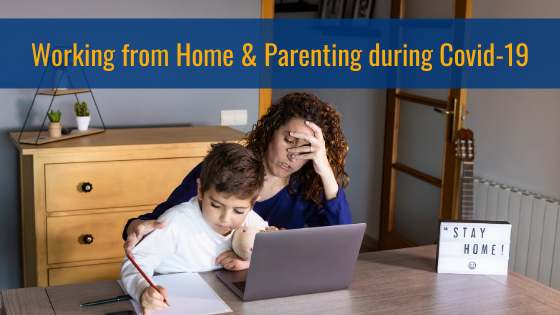Selecting a venue, wedding menu tastings and making a will, they should all go hand in hand.
Marriage is a significant event. While practical considerations are not the main reason most people get married, it’s almost as important to consider these as it is to take into account the more emotional, heartfelt side of the celebration. Succession planning is actually because of the love and care felt between partners – should anything happen to you, you want to be sure that your family will be taken care of in the way you wish.
Whether you are a married couple, an unmarried couple or a singleton, making a will is crucial. For married couples, certain incentives mean that you pay less inheritance tax, while for unmarried couples the uncertain status of your partner in law states you need to explicitly name them in your will for them to receive anything. If you are single, if you don’t choose who gets what you own, the law will.
Making a will is the only way to ensure that what you own at the time of your death goes to whom you wish to have it. However, how you approach the making of a Will and the urgency with which you make a Will, may vary based on the value of your assets and your circumstances and your specific wishes for your estate after you die.
Here’s how your marital status may affect the Will-making process
MAKING A WILL BEFORE MARRIAGE
When a person dies without having a will in place the law intervenes and decides how the assets and valuables of the deceased person are to be distributed. If you die without making a will, you are said to die intestate. If that happens, your money and property get distributed following the rules set out in the Succession Act, 1965.
These rules that decide the distribution of your assets in the absence of a will are commonly called the laws of intestacy. Your estate will be legally inherited by your next of kin. The Succession Act sets out the order of your next of kin in categories of proximity for inheritance. If you are single and your parents one or both are still living, they will inherit your estate. If neither of your parents is alive, your siblings will be deemed your next of kin, and they will share in your estate equally. If an unmarried person passes away without any identifiable next of kin, then the Succession Act provides that the state will become entitled in default and sets out clear legislation in that circumstance.
CELEBRATING AN ENGAGEMENT
Announcing your engagement is an exhilarating time, but the law doesn’t do emotion. If you are single and you have made a will the wishes in your will continue to be lawful unless you update your will to include your fiancée. Many engaged couples choose not to marry for a few years, so making a will or reviewing your existing will to add each other is essential.
If there is property in your sole name or perhaps other valuables you wish another person to specifically benefit from on your untimely death then ensure you make a will as part of the next stage of your life together. Many couples like to make a will prior to the wedding and honeymoon. If you have a will as a single person, it is essential to know that a Will is automatically revoked if it existist before marriage or civil partnership, unless it is made in contemplation of that marriage.
When a Will is “made in contemplation of marriage” Section 85(1) of the Succession Act provides that ”a will shall be revoked by the subsequent marriage of the testator, except a will made in contemplation of that marriage, whether so expressed in the will or not.” It is not enough to expect to marry in general, or sometime in the future – you must expect to marry a specific person and in a reasonable amount of time. Your will, if you update it after your engagement, would be made in contemplation of your marriage to your fiancée.
MAKING A WILL WHEN COHABITING
Making a Will is especially important if you are a cohabitating couple. Cohabitants (cohabiting couples) do not possess the same legal rights and obligations as married couples. Cohabitants are defined in the Civil Partnership and Certain Rights, and Obligations of Cohabitants Act 2010 as two same-sex or opposite-sex adults are who are living together in an intimate and committed relationship. Given the limited legal recognition of your relationship, your partner will not automatically receive your assets unless they are on extraordinarily good terms with your family, or they are prepared to launch costly and draining court proceedings against your family to ensure that they receive support.
A financially dependent cohabitant may be able to apply to the courts for redress if the relationship ends as the result of death, but there are strict criteria to be met to qualify for compensation and be awarded a financial contribution from your partner’s estate. A married couple has the benefit of not only knowing they can inherit any value from each other without paying inheritance tax on it they also have the knowledge that they are entitled to an automatic legal share of their spouse estate should their spouse not make a will or indeed seek to cut them out entirely. Even if a will gives a spouse less they are entitled to; your surviving spouse can automatically request their legal entitlement to a one-half share of the value of your estate if you have no children. If you have children, the surviving spouse can claim a one third value share of your estate if they have been excluded in your will or receive less than their legal share in your will.
Making a will provides for your wishes for the future ownership of your property and financial wealth without putting the burden on your loved ones after you are gone. Placing a will in place also allows you to strategically consider the best way to deal with inheritance tax in advance of the death. The inheritance tax implications for a cohabiting couple are more onerous than that of a married couple due to zero inheritance tax between spouses.
MAKING A WILL AS A SAME-SEX COUPLE
Extending marriage to apply to same-sex couples has not changed the fundamental nature of marriage, and same-sex married couples can take advantage of all the same rights and entitlements as a heterosexual married couple.
The benefits of same-sex marriage or a civil partnership are the same as a heterosexual marriage when it comes to inheritance and the legal right share. Similarly, on the death of one or both of a married couple without wills the law will decide under the rules of intestacy how the sole assets of the deceased are distributed. Property registered in joint names of the married couple will automatically pass outside the will to the surviving spouse however if no will is in place to cover assets in the deceased’s sole name then the law will decide under the rules of intestacy how they should be distributed.
So make a will, be clear in your wishes for your assets especially if you wish to include a charity or someone else other than your spouse and family. Consider at that time if assets in your sole name should be transferred in joint names.
Making a will and estate planning consultation allows me to consider all these details, plan your future and deal with any queries arising.
HOW DO WE MAKE SIMILAR WILLS?
As a couple, you may seek to make similar Wills. Your wishes for your joint assets can very often be the same. These are simply separate Wills that are nonetheless virtually identical, leaving the estate to the same beneficiaries usually each other in the event of one spouse predeceasing the other.
Couples over 50 often make wills benefiting each other and then state clearly their wishes in the event of their spouse pre-deceasing them.
At this stage, a will can reflect ones last wishes as you and your spouse may have clarity for the future distribution of your assets. Very often it is when children are grown up and independent of their parents that parents with an empty nest begin to think how they wish to provide for each other and after that on the death of one spouse. It is also worth noting that children do not have an automatic right to a share of their parent’s estate unless it is an intestacy and there is no will.
You can make your will to exclude your children but remember you cannot do the same for your spouse. Scottsdale divorce lawyers will ensure that your best interests are protected. However, a child who feels a parent has not provided for them suitably or not at all in their will can bring a claim to bc family law under S117 of the Succession Act 1965 claiming a share in their parent’s estate, to be determined by the court.
CAN WE PROVIDE FOR OUR YOUNG CHILDREN?
This question is most common with young married couples on the birth of their first born child. A trust will can be put in place until your youngest child reaches the age of 18 years of age or upwards, providing for their children while the family plans on growing in numbers. Wills are often completed in favour of the spouse in the event of a single fatality and appointing caregivers and guardians and trustees for the children in the unforeseen event of a double fatality.
It is critical to provide for young children with clarity as to who is to step into the parent’s role as guardians for caregiving. Nominating executors and trustees to manage your joint assets if an unforeseen tragedy arose and both parents passed away is especially important to give powers to the persons appointed by you to manage the assets for the benefit and future of your children.
I often meet young moms and dads who regularly say they put making a will on the long finger. Who will care for the children in my absence? Whom will I nominate as executors and guardians? As a will can be written, rewritten and reviewed many times over, don’t let these questions be a reason not to make a will now. The key to a successful succession plan is to plan and prepare for all eventualities. All ages and stages of your life journey should embrace estate planning.
FURTHER QUESTIONS ABOUT MAKING A WILL, MARRIAGE AND DECEASED ESTATES
If you have any further questions or concerns about making a Will and your current circumstances, please do get in touch with us. We have over 40 years experience in the matters of Deceased Estates, Wills, Trusts and Probate, and enquiries can be made without any obligation.
“Before anything else, preparation is the key to success” Alexander Graham Bell






